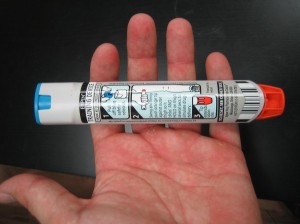An allergy occurs once the immune system mistakenly identifies a particular substance as a threat to the body. Honey is a by-product of bees and pollen, thus those who suffer from allergies to bee stings or pollen are susceptible to honey allergy. It is important to note that the symptoms of honey allergy tend to vary from one individual to another but it is not life-threatening and can be easily managed.
Symptoms of honey allergy
The characteristic symptoms of honey allergy include lip or tongue swelling, runny nose, watery eyes, constant sneezing, itchy throat and hives. The other possible symptoms that can manifest include headaches, skin inflammation and severe congestion. These symptoms tend to vary from one individual to another.
Treatment for honey allergy
If an individual experiences an allergic reaction to honey, the commonly used treatment is to provide over-the-counter antihistamine right after the onset of the symptoms. The most common antihistamine is diphenhydramine or Benadryl. Other antihistamines are not as effective since they release the medication at a slow pace over a 24-hour period. Once diphenhydramine is given, it should relieve the symptoms of honey allergy within an hour. In case the symptoms persist for more than an hour, contact a doctor right away or bring the individual to the emergency department at the nearest hospital.
Preventing an allergic reaction
One way to prevent an allergic reaction upon exposure to honey is to instruct the individual to avoid beverages and foods that contain honey or the honey by-products. Common foods that contain honey include torones, baklava and other Greek pastries. There are also many restaurants that serve tea with honey. It is important that the individual will ask first about the ingredients before eating certain foods since they might contain honey. In some cases, others take diphenhydramine before eating foods or drinking beverages that contain honey, but this is not a recommended practice.

What the potential complications?
During a severe allergic reaction, anaphylactic shock can develop. Take note that this reaction can lead to shortness of breath, dizziness, fainting and even seizures. During an anaphylactic shock, it could not be treated with over-the-counter medications anymore. If you suspect that an individual is experiencing an allergic reaction to honey, you have to call for emergency assistance since this is considered as a life-threatening reaction.
Individuals who are prone to severe allergic reaction upon exposure to honey are given prescription for an EpiPen. This is an injectable epinephrine that is given once the initial symptoms of an allergic reaction manifest. This injectable epinephrine is prescribed by doctors to individuals who are prone to severe allergic reactions. If you want to learn how to use an EpiPen properly, click here. A shot is administered in the thigh to provide relief to the symptoms until medical care can be provided.
